Directed by Werner Herzog
West Germany, 1972
Well, the title certainly grabs your attention. As this film opens you could be forgiven for thinking that you are watching science fiction. The atmosphere is otherworldly, with swirling, dissipating mist and the ethereal strains of choral music. As the camera moves in, we can make out specks moving on the landscape, or should I say mountainscape. We are near the summit of a mountain not too far from Machu Picchu in Peru. A line of explorers are making their way down an Inca stairway, at constant risk of going over the edge.
And that is the experience of watching Werner Herzog’s film, Aguirre, the Wrath of God. There is a momentum that sweeps you away, like the Amazon River we will encounter later on, forever threatening to take you over that edge.
So ReidsonFilm are back with another Herzog production, following our review of his highly idiosyncratic Bad Lieutenant: Port of Call New Orleans, starring Nicolas Cage. Both are films about irrepressible men dancing on the edge of the abyss. In Cage’s case we were in New Orleans. Here we are in Latin America. Herzog is renowned for his documentaries that capture the conflict between humanity and nature, think of Grizzly Man and Into the Inferno. Films about people who become possessed by their passions. With Aguirre, we see that played out in fictional form, but the director himself is no less fanatical. He could have made this film in a less challenging location or even shot it in a studio, but his drifting camera draws us into a world that is all too tangible.
The story itself is kind of based on a real-life odyssey. The titular character, Don Lope de Aguirre, did indeed exist. In 1560 he is a member of a party of Spanish conquistadors, searching for El Dorado, the legendary Inca city of gold. Heading the quest is Francisco Pizarro (you know him, the man who destroyed the empire of the Incas), and he sends a party of men down the Amazon on a raft. He places nobleman Don Pedro de Ursúa (Ruy Guerra) in charge but the real power obviously lies with Aguirre, his supposed lieutenant. Played by Klaus Kinski with his blonde hair and wild, blue eyes, he looks nothing like a Spaniard. He looks like Klaus Kinski, his body contorted in a bizarre posture, channelling a mix of both Richard III and Nicolas Cage from the aforementioned film (more likely, Cage is channelling him).
The raft carries a motley crew. As well as a priest, Gasper de Carvajal (Del Negro) there is Ursúa’s wife, Inez (Helena Rojo), and Aguirre’s fifteen-year-old daughter, Flores (Cecilia Rivera). As expected events rapidly take a turn for the worse. The Peruvian tribesmen are rarely visible, but present a constant threat, their arrows picking off the crew one by one. A slave translates the shouts echoing down the river:
Meat is floating by!
Ursúa is killed (by Aguirre), and Inez disappears. Starvation and dysentery takes its toll. Madness ensues and we are left with the crooked figure of Aguirre on the raft, isolated, alone, and - an extraordinary spectacle - in command of a swarming mass of small monkeys. With a Shakespearean swagger he declares himself the ‘Wrath of God’, with plans to dethrone the King of Spain, marry his own daughter, Flores, and found a new dynasty.
So, based on real people, but as Herzog himself said:
“…the entire script is pure invention.”
Aguirre could be a straightforward adventure story, but Herzog has dispensed with the facts to give us something closer to a fever-dream. The film is bookended by the words of a priest, supposedly from a rescued diary. The shaky, handheld camera certainly adds to a documentary-style hinting that what we are watching is found footage.
…subs v dubs: both the English and German versions are 100% dubbed with no original sound. And to add another twist, the German version doesn’t have Kinski's voice as he wanted too much money to record his part in studio so Herzog had to hire someone else to do it. But the English dubbed version is his voice.
Found footage is what we could have actually ended up watching. The lack of budget is obvious from the use of cheap theatrical blood, but more pointedly, the absence of crafted special effects heightens the sense of real danger that the cast (and crew) face. Despite this, there is space for moments of absurd humour: one man ends up with a spear through his stomach and before falling to his death comments that, “it looks like the long arrows are becoming fashionable”. Another continues his count to ten as his freshly decapitated head rolls to a halt.
But Herzog sure knows how to create a lasting image. As the raft wends its way down the river the surviving men catch sight of a boat, stranded high up in a tree, A hallucination? A question for those aboard, but also a question for us, the viewers. I say that because shortly afterward Aguirre breaks the fourth wall and looking into the camera, addresses us directly:
If I, Aguirre, want the birds to drop dead from the trees... then the birds will drop dead from the trees. I am the Wrath of God. The Earth I pass will see me and tremble. But whoever follows me and the river, will win untold riches.
To be sure this film is overwhelmed by Kinski – in a good way. He, both literally and metaphorically, capsizes the film. An irresistible and dangerous force, like Don Quixote on a speedball, it is never clear whether he is playing himself, Aguirre (whose nickname was El Loco), or indeed Werner Herzog. But Herzog must have the final word:
Kinski always says the jungle is full of erotic elements. I don’t see it so much as erotic. I see it more full of obscenity – fornication, asphyxiation and struggling for survival.
Make of that what you will.
Reids’ Results (out of 100)
C - 79
T - 90
N - 90
S - 86
Thank you for reading Reids on Film. If you enjoyed our review please share with a friend and do leave a comment.
No one is talking about it, so we thought we should. Arriving soon, the ReidsonFilm podcast on Poor Things
Coming next… The Ascent(1977)

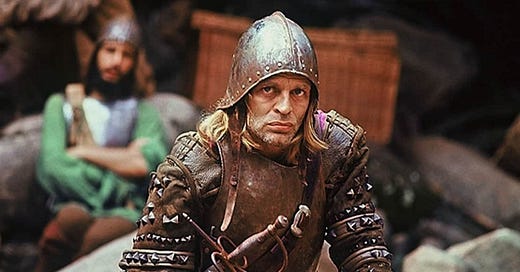



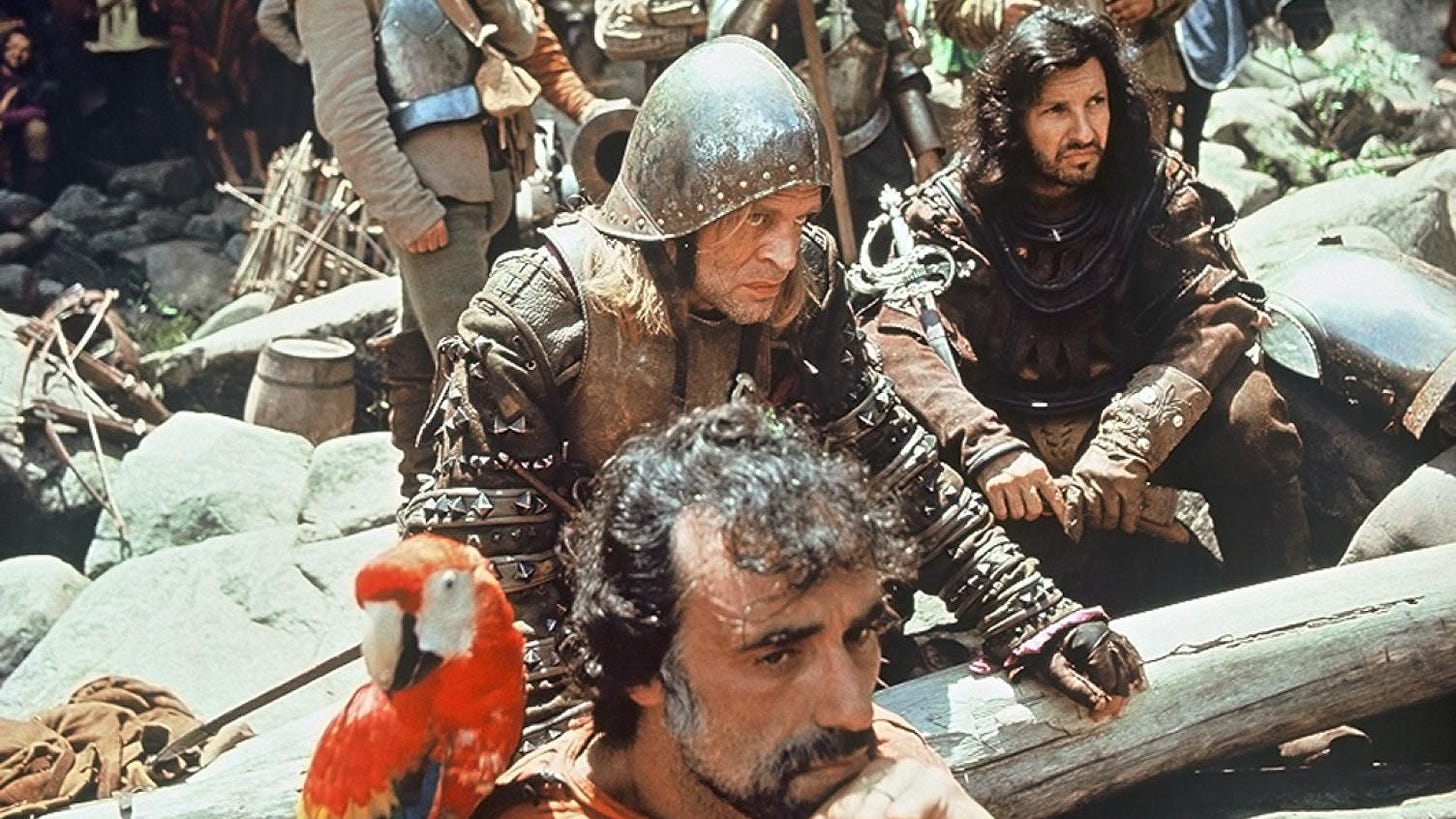
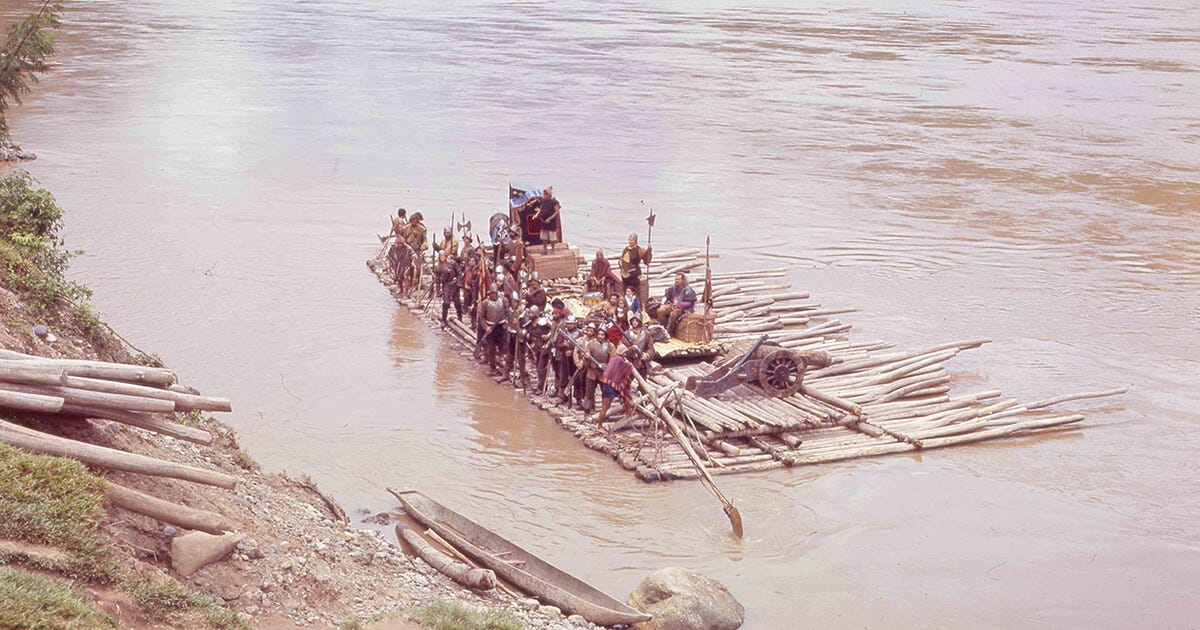
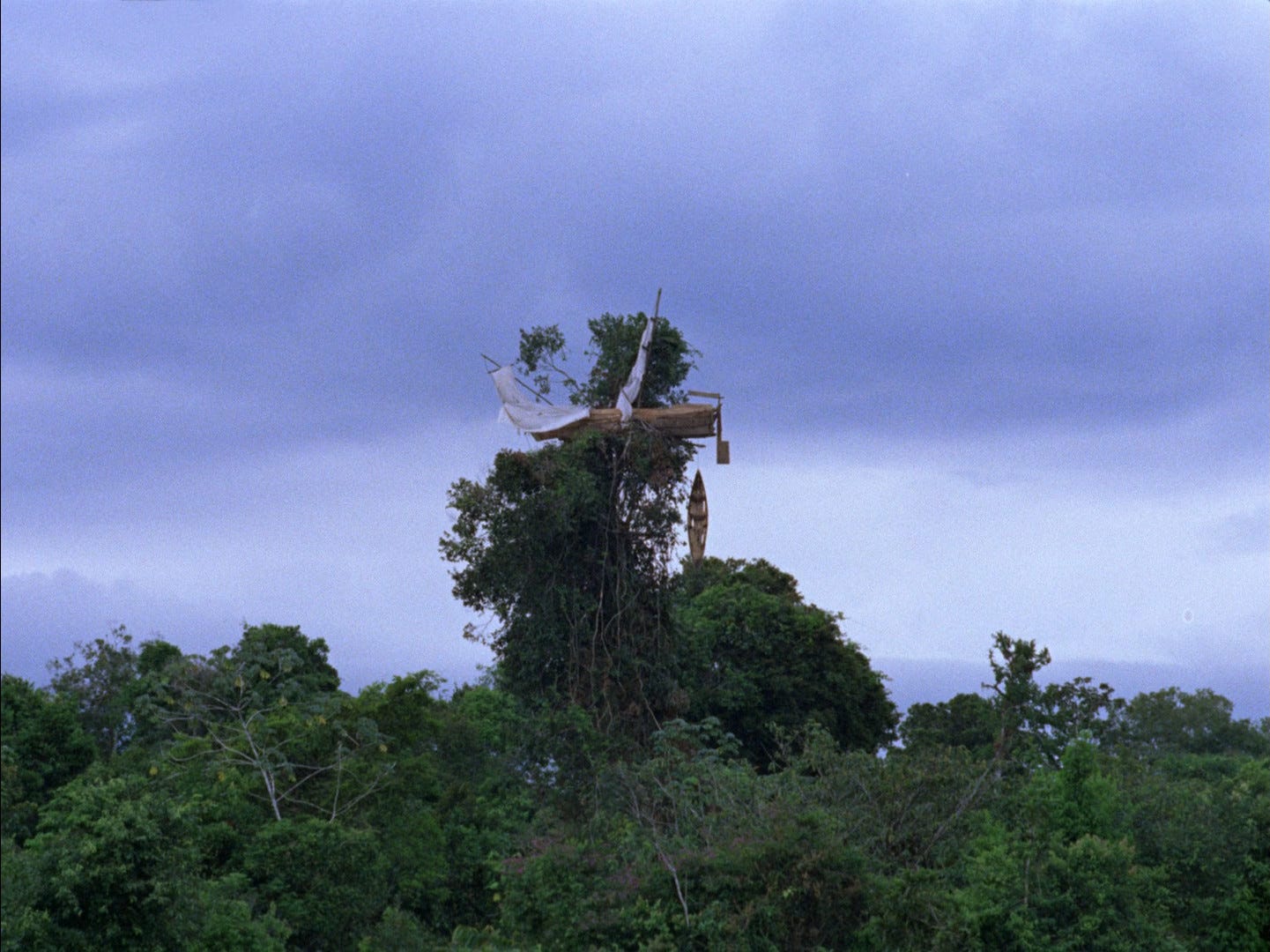
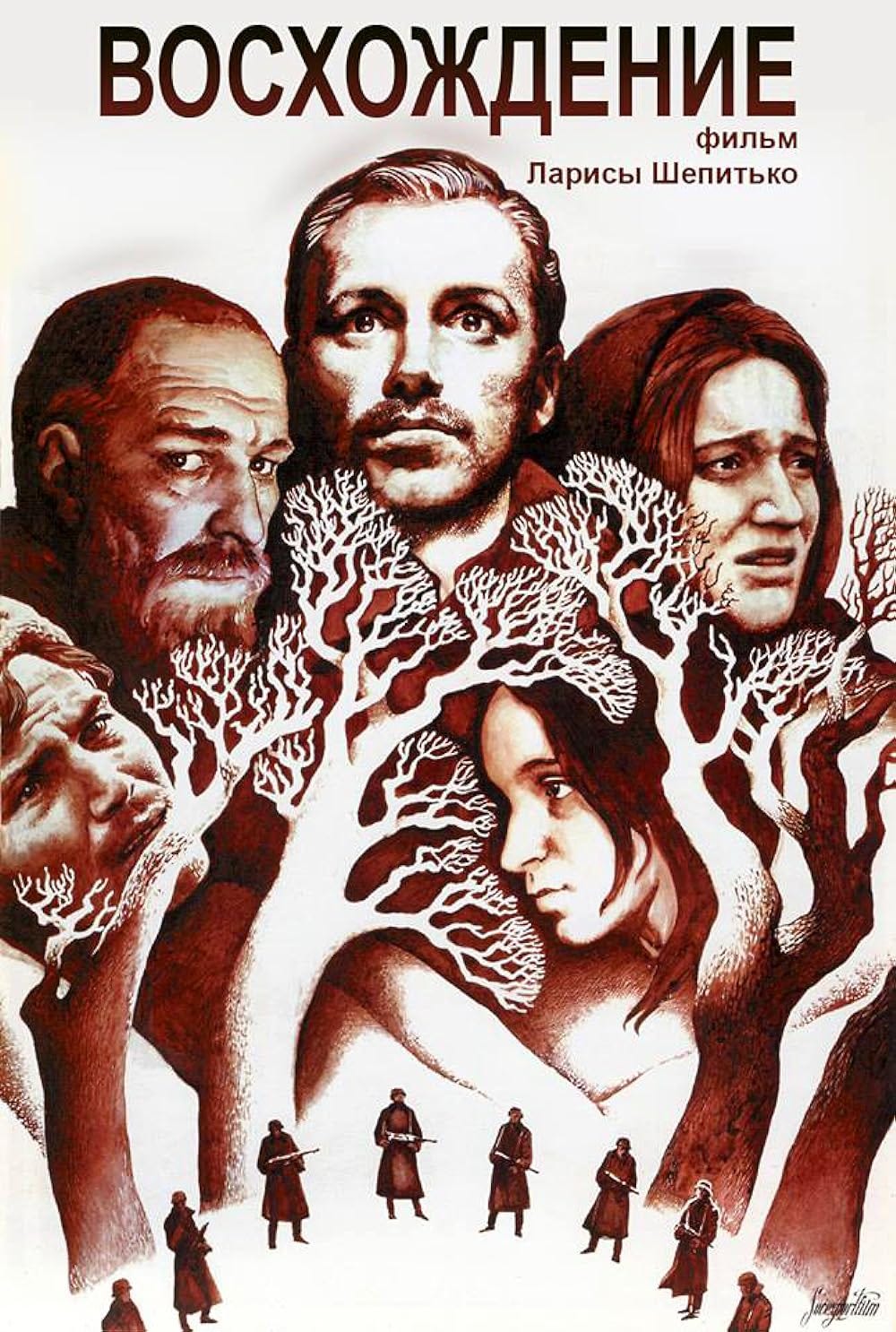
The whole movie I kept thinking about how did a diary from the 1560s written in ink survive all that water and after being left somewhere in the Amazon, and how did the monk write anything after the bottle of ink was drunk by a soldier, only to find out it was fiction. Was this a comedy?
How would someone think it not needed to fill the reader in re what C, T, and the other rating letters are for?
🤔🥸